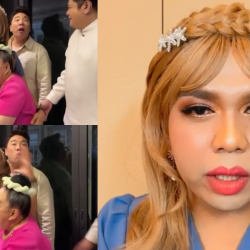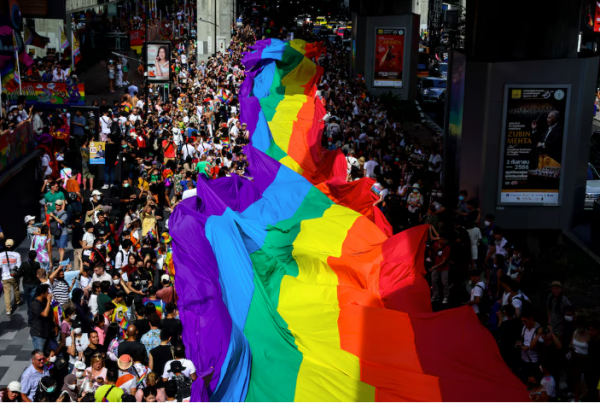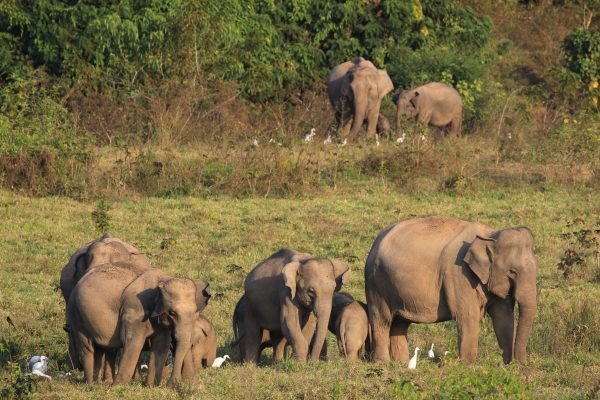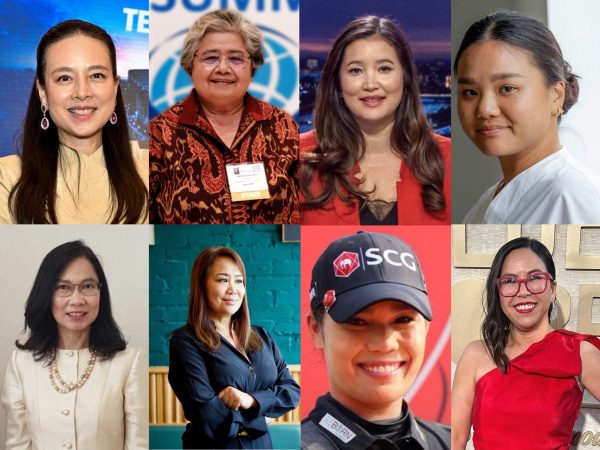Would the next government be kinder to migrants and refugees?

Political parties campaigning for the May 2023 general election should spell out their policies on migrants and refugees because of its significance for Thailand’s stature on the international stage, according to many experts who were speaking at a forum in Bangkok.
Most of the representatives of the parties at the forum hosted by Migrant Working Group on Thursday (April 6) swore by the principle of human rights, pledging that if they were a part of the next government, they would assure good treatment of migrants and refugees who had fled from difficulties in their home country.
Large numbers
More than three million migrant workers, mostly from neighboring countries Cambodia, Laos, and Myanmar, live and work in Thailand. As of March 2023, 2.7 million of them are registered as legal workers in various sectors across the country, according to the Department of Employment. Experts estimated 1.5 million to 2 million unregistered workers from these countries.
Another huge number of irregular migrants are refugees and asylum-seekers who have been living in camps and detention centers without proper care for years. Thailand has sheltered more than 90,000 refugees from Myanmar in border provinces since the middle of the 1980s, approximately 5,000 urban refugees from over 40 countries, and 480,000 stateless persons, according to the United Nations High Commissioner for Refugees (UNHCR).
The authorities have detained 150 Uyghurs since 2015 after the deportation of 170 children and females to Turkey and 109 males to China, where they might face severe punishment, according to the Migrant Working Group. The group called on political parties to launch proper policies for these afflicted people, even though they don’t stand to benefit in the form of votes from these people.
Police on Wednesday (April 5) arrested 96 Rohingya people in Sangkhla district of Kanchanaburi province for illegal entry, raising the number of Rohingya detainees in Thailand to more than 500.
A few thousand people have fled the ongoing armed conflict in Myanmar after a military coup two years ago, seeking a safe place along the Thai border currently without recognition of the Thai authority, the Migrant Working Group said during the public forum.
Human rights a priority
Pheu Thai Party’s Chaturon Chaisang said his party has a clear policy on migrants and refugees, which complies with the universal principle of human rights and the United Nations charter. The policy on refugees is an inseparable part of foreign policy, which should commit to upholding international obligations, he said.
“Our party would uphold the ASEAN Five-Point Consensus to facilitate the international community in providing humanitarian assistance to Myanmar people,” he said. He accused the government under Prayut Chan-o-cha of being too close to Myanmar junta leader Min Aung Hlaing and treating asylum-seekers badly.
Democrat Party’s Kiat Sittheeamorn proposed a proactive foreign policy that would make it incumbent on the international community to share the burden of taking in the refugees for resettlement or providing financial support for their upkeep.
“Of course, we will comply with the non-refoulement principle, and will not deport them if they face danger, but we won’t allow any country to lecture us on this matter,” he said at the forum.
Move Forward Party’s Chonticha Jaengraew said her party would push Thailand to sign and ratify the 1951 Refugee Convention to grant full protection in accordance with international law to the refugees. “We have to rectify the wrong policies of the previous government and look at this matter from a human rights and humanitarian perspective, rather than security,” she said.
The party would review the principle of non-interference and also grant protection to Thai asylum-seekers who fled the country after being charged with lese majeste. Some of them were suspected to have been killed in neighboring countries, she added.
“There are cases of the forced disappearance in Thailand of three political asylum-seekers from China, Laos, and Vietnam, while seven Thai activists reportedly disappeared in neighboring countries,” she said. “Some of them were found dead in the Mekong River and nobody took any responsibility.”
People with disabilities and voting – What can be done better?
Let long-time refugees naturalize
Fair Party’s Kannavee Suebsang said his party viewed irregular migrants and asylum-seekers from a humanitarian perspective, rather than as a security threat. The party has proposed the issue as a national agenda, requiring all relevant agencies and officials to see the big picture.
“Look, Thailand has handled all kinds of migration under the 1979 Immigration Law, regarding their illegal entry, as people who needed to be punished and deported,” he said.
Those who can prove they are victims of human trafficking would not be deported, but the authorities have no clear policy to treat them better than just holding them in detention centers, according to a social worker who is keen to speak out on the matter.
Kannavee, who has long years of experience in dealing with the issue at the UNHCR, suggested that the new government consider the assimilation of 90,000 refugees from Myanmar into Thai society, as they have lived in the shelters for more than four decades.
“They neither have a chance to resettle in a third country nor return to their home country,” he said. “Why don’t we welcome them to live, be educated, and work here? If you want to shut the refugee camps down, open [the gate] to welcome them,” he told the forum.
Contribute to the economy
Political parties mostly agreed that the policy of regulating migrant workers had more to do with economic management, rather than security matters. The authorities led by the National Security Council regulated migrant workers due to the fear of losing control of them. Many Thais believe they will take jobs away from Thai nationals.
“Migrant workers are not a security threat as regarded by previous governments. They are contributors to the Thai economy,” said Zendai Party’s Chris Potrananda, “We need them, as our workforce is declining. They work for the Thai economy and pay tax to the government,” he said. “It’s a huge amount of money.”
Chaturon and Kiat, whose parties have experience in migrant worker management, agreed but proposed an alternative approach. Pheu Thai saw the need to ease the complicated procedure of recruiting migrant workers mostly from neighboring countries to avoid human trafficking and corruption.
“A migrant worker who wants to work in Thailand has to pay as much as 30,000 baht to security officials — military, police, interior officials, immigration and traffickers — to facilitate their travel and get access to jobs,” Chaturon said.
Why foreign policy takes a backseat for Thai political parties
A solution for labour shortage
The authorities created complicated procedures to screen and verify their nationality and origin so that the officials will get an income, he said. “Why don’t we allow them to walk freely to seek jobs and grant them work permits if an employer agrees to hire them?” he challenged.
Kait said there remains a need to regulate and screen migrant workers to ensure they have the qualifications for advanced sectors for the sake of economic development, he said. “No country in the world allows free movement for job-seeking foreign workers,” he said.
Move Forward’s Chonthicha said migrant workers should not only have easy access to jobs but also to welfare schemes as Thai citizens. The party would push the government to ratify International Labor Convention No. 87 and No. 98 to upgrade labor standards as well as promote and protect the rights of workers, including migrants, to form unions for their bargaining power, she said.
By Thai PBS World’s Political Desk






